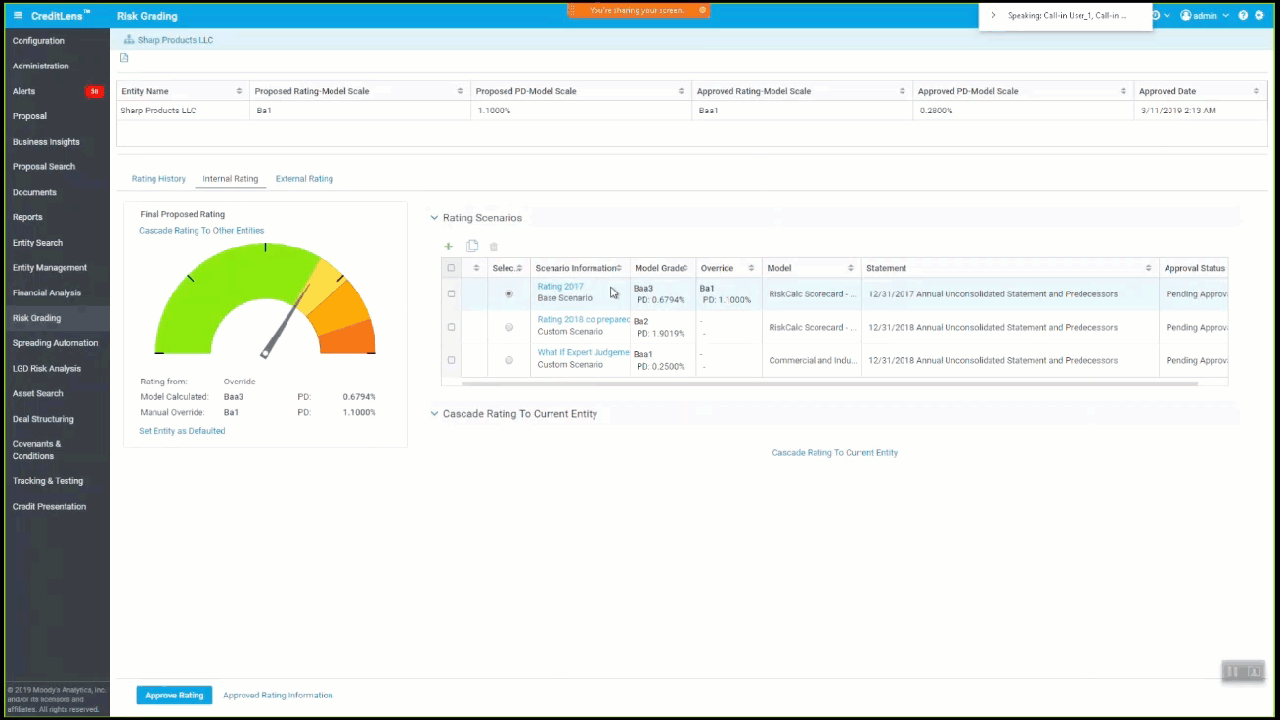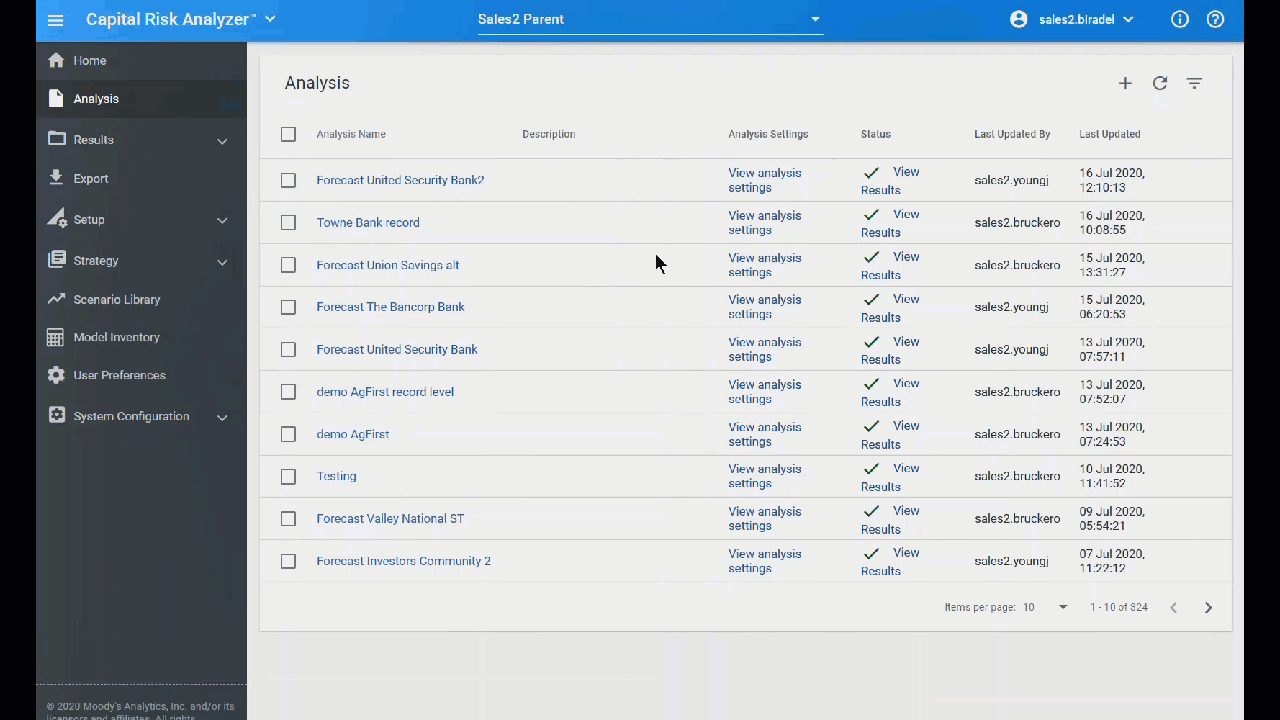

Moody’s Analytics is uniquely positioned and dedicated to helping financial institutions implement and manage the CECL accounting standard, fully incorporating this significant change into your finance and credit infrastructure. Throughout implementation, we offer extensive data, modeling, forecasting, and advisory services to help institutions build more profitable, forward-looking strategies.
We provide a modular and integrated set of solutions that span the credit lifecycle, ensuring that data captured at one point of the process can be reused efficiently throughout.
CECL is a significant component of this lifecycle, and our ability to understand how to process your CECL allowance within the entire credit lifecycle leads to efficiency gains. This enables institutions to compete by effectively managing the risk return of their portfolios and creates a better way to allocate capital across business units.
Moody’s Analytics has worked with hundreds of organizations for both the adoption and ongoing processing of their CECL allowance estimates. Our experts can support the requirements necessary to help your organization with this complex accounting standard. Whether you need models to measure credit risk, reasonable and supportable forecasts, data or a full framework, we have both the tools and the expertise to help you.
CECL places significant requirements on a company’s data management programs. This includes the need for current data as well as robust historical data to consider within your CECL estimates. Moody’s Analytics can assist with our award-winning data to help you develop, improve, and validate your data and credit risk models. We offer credit, economic, and financial datasets.
Many companies have chosen to solve for CECL using credit loss models to determine the likelihood and extent of future losses. Moody’s Analytics can assist you in addressing this challenge for your unique portfolio composition with our best-in-class modeling methodologies. We help clients assess, manage, and validate models for CECL requirements and consistency with industry standards.
Moody’s Analytics has generated an award-winning framework to run your CECL process across various asset classes and methodologies. Our solution will allow you to run an integrated, scalable credit allowance process and step-by-step CECL analysis. The powerful engine features built-in analysis tools for meaningful and efficient decision-making.
If you’re looking to enhance or automate your CECL process, our award-winning ImpairmentStudio™ platform brings our capabilities together. The highly interactive and user-friendly CECL solution helps you address the operational complexities of this evolving accounting standard. Moody's Analytics offers unparalleled customer support throughout the entire implementation process. Our CECL experts are here to help you through every step to ensure a successful implementation, and will continue to service the needs of your institution after deployment.
Simplify your allowance analysis by:
Tell us a little more about your organization and if you'd like to request a demo of our ImpairmentStudio™ solution today.
Let us know how we can best get in touch with you. One of our experts will be in touch shortly.

Implementing CECL starts with credit origination. Collecting accurate and standardized data from borrowers at the point of credit origination benefits all downstream processes, including the calculation of loss allowances. To do this successfully, financial institutions must implement automation and digitization technology to streamline the credit assessment and origination process.
The CreditLens™ platform integrates with our award-winning ImpairmentStudio™ solution, eliminating the need for manual data entry and further improving your data integrity.

When implementing CECL, your organization should consider how to plan and forecast with this allowance accounting in place. Moody’s Analytics is helping many organizations do so by usingour credit risk models and economic scenarios. We also offer an automated framework with the ability to forecast CECL provisioning.
Moody's Analytics Capital Risk Analyzer combines economic, credit, and accounting know-how to help organizations evaluate strategic decisions based on financial and regulatory metrics for capital planning and stress testing (DFAST, EBA).

Moody’s Analytics is a 4x winner of the IFRS 9 ECL Modelling Solution of the year award. ImpairmentStudio won the title in the 2022 Risk Technology Awards.

Moody’s has won the CECL category in the Chartis RiskTech100® 2024.